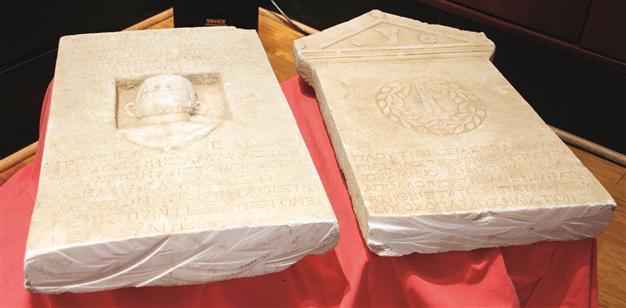FBI returns the smuggled Lydian artifacts to Turkey
WASHINGTON - Anadolu Agency

The Lydian artifacts were returned at a ceremony in Washington attended by Turkish and US officials.
The U.S. Federal Bureau of Investigation (FBI) has returned 10 illegally traded historical artifacts from Lydia, an Iron Age empire in western Turkey, to the Turkish mission in Washington.
Returning the items, which were estimated to have originated in the western province of Manisa and date back to the first and third centuries A.D., to the Turkish Embassy came during a joint presentation between officials from the FBI and Turkish mission in Washington on Aug. 5.
The artifacts included grave stones and sacrifice stelas, which are stone or wooden slabs on which Lydians would inscribe the sacrifices of animals or possessions that deceased people had made during their lives, used in funeral or commemorative services.
The items were smuggled into the U.S. in 2006 and spotted by the Turkish Culture Ministry as they were being traded illegally, and were later seized in an operation involving Turkish security officials, the FBI and Washington D.C. police officers in May.
John Boles, the FBI Assistant Director of the International Operations Division, said the operation was “another example of the strong coordination and cooperation between the two countries.”
 Information withheld
Information withheld Turkey’s Ambassador Serdar Kılıç thanked Professor Hasan Malay, a Turkish art historian, who had spotted the artifacts and reported their whereabouts to the authorities. “These artifacts deserve to return to their homeland,” Kılıç said.
The officials declined to give details about the recovery of the artifacts, saying information was being withheld to prevent illegal traders from being informed of their operations.
The Turkish Culture Ministry said the items would be put on exhibition at the Museum of Anatolian Civilizations in Ankara and then in the Manisa Museum.
The Turkish Culture Ministry has facilitated the recovery of 4,147 smuggled historical artifacts in the last 10 years and returned them to “Anatolia’s cultural heritage,” Kılıç said.

 Information withheld
Information withheld